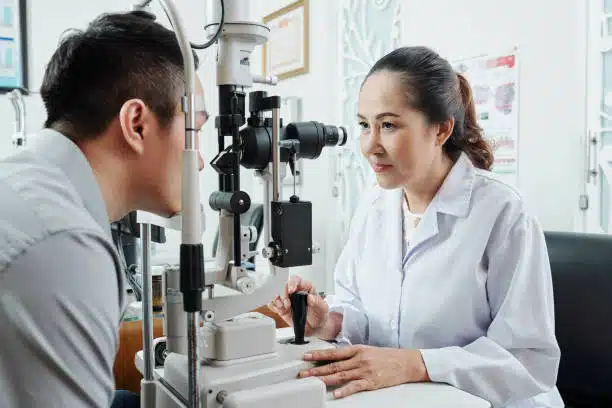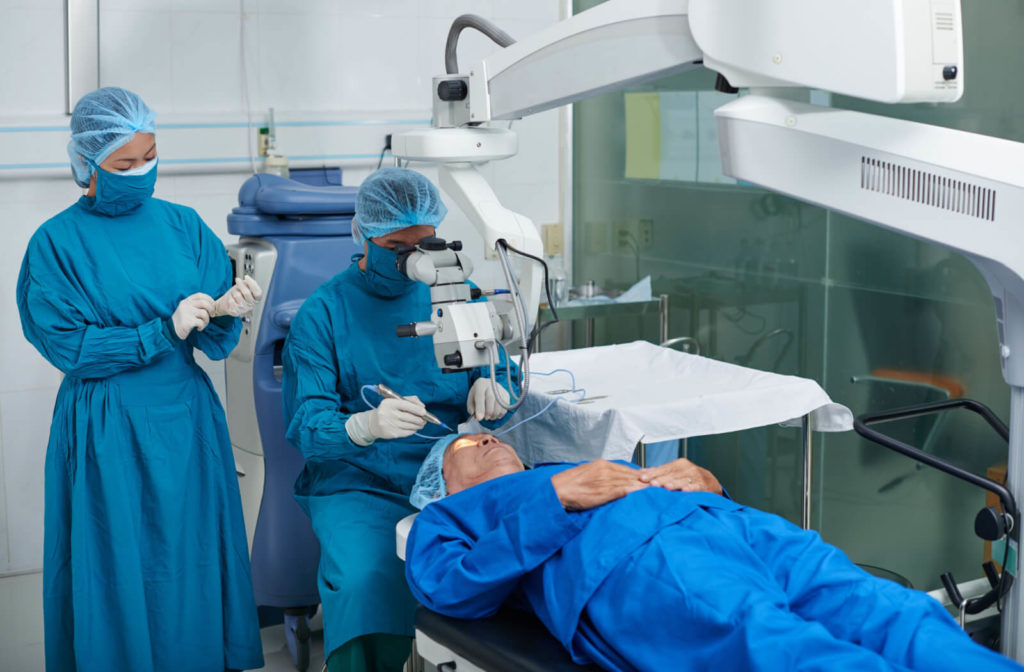How an Eye Doctor Can Change Your Vision Health in Chino
How an Eye Doctor Can Change Your Vision Health in Chino
Blog Article
Comprehending the Comprehensive Duty of an Eye Doctor in Modern Eye Treatment
With innovations in innovation and a boosting emphasis on preventative care, eye doctors are essential in detecting and handling persistent eye conditions, while likewise engaging in early disease discovery. Just how do these duties intersect with their function in advertising overall eye health and wellness, and what does this mean for patient outcomes in a joint health care environment?
Expanded Extent of Practice
In current years, the role of optometrists has developed dramatically, with several specialists now welcoming an expanded scope of method that expands past typical eye assessments. Their obligations currently include a large array of solutions, including recommending medicines for ocular problems, taking care of chronic eye diseases, and doing small surgical procedures.
Better, optometrists are currently much more entailed in joint treatment, functioning very closely with ophthalmologists, medical care physicians, and various other healthcare experts to guarantee alternative person treatment. This interprofessional collaboration is crucial in taking care of intricate cases that require a multidisciplinary approach. In addition, optometrists are playing a pivotal role in public health campaigns, such as vision screenings and eye health education, focused on improving community wellness end results.
The expanded scope of method for eye doctors not just boosts their capacity to offer thorough care however also addresses the expanding need for reliable and easily accessible eye care solutions, adding to total healthcare improvements.
Early Condition Detection
Very early detection of eye conditions is significantly becoming a focal factor in the increased function of eye doctors. As main eye treatment companies, eye doctors are distinctively positioned to recognize very early indicators of eye problems such as glaucoma, macular deterioration, diabetic retinopathy, and cataracts. This pivotal function is vital, as very early diagnosis can dramatically boost the management and prognosis of these problems, possibly protecting against vision loss and boosting individual end results.
Optometrists employ extensive eye assessments to identify refined changes in vision and eye health. The capability to acknowledge very early indications of systemic health concerns, such as high blood pressure and diabetes, with eye indicators further emphasizes the relevance of routine eye check-ups.
Furthermore, optometrists play a crucial function in person education, stressing the relevance of regular eye exams as component of overall health and wellness upkeep. By cultivating a positive approach to eye care, optometrists contribute dramatically to public health and wellness, guaranteeing illness are captured and handled effectively prior to they can proceed.
Advanced Diagnostic Techniques
Advanced diagnostic strategies have actually reinvented the practice of optometry, enabling practitioners to spot and keep an eye on eye diseases with extraordinary accuracy. Technologies such as optical coherence tomography (OCT) offer high-resolution, cross-sectional pictures of the retina, promoting very early discovery of conditions like glaucoma and macular degeneration.
An additional essential development is electronic retinal imaging, which captures extensive views of the retina making use of high-definition video cameras. This modern technology is essential in determining modifications in retinal structure over time, thus assisting in the administration of problems like diabetic you could check here retinopathy. Visual area testing, boosted by computer-aided systems, permits specific mapping of a person's line of vision, essential in diagnosing and tracking glaucoma development.
Corneal topography, another notable diagnostic tool, produces topographic maps of the cornea's surface area. This is especially valuable in suitable get in touch with lenses and preparing refractive surgical procedure. These advanced analysis methods jointly enable eye doctors to supply positive, targeted treatment, making sure much better client results and enhancing their crucial duty in eye health administration.
Managing Persistent Eye Conditions
Managing persistent eye problems is a keystone of optometric care that requires an extensive understanding of different ocular diseases and their long-lasting implications. Optometrists play an essential duty in tracking, managing, and diagnosing conditions such as glaucoma, diabetic retinopathy, and age-related macular deterioration. These conditions, if left neglected, can lead to substantial visual problems or loss of sight, highlighting the important significance of continuous care and management.
Eye doctors utilize a variety of diagnostic tools, consisting of optical coherence tomography (OCT), aesthetic area screening, and fundus digital photography, to examine the progression of these chronic problems. By very closely keeping an eye on modifications in eye wellness, optometrists can change important source treatment strategies to reduce illness development. This might involve suggesting medications, suggesting lifestyle alterations, or coordinating with eye doctors for surgical interventions when needed.

Role in Preventive Care
Preventative treatment is an essential aspect of optometry that concentrates on maintaining eye wellness and preventing the beginning of eye diseases. Optometrists play a critical role in early continue reading this detection and avoidance, employing normal eye evaluations to recognize threat factors and subtle changes in ocular wellness. Eye Doctor Optometrist. These examinations are not just about vision improvement yet incorporate a comprehensive assessment of eye features and frameworks, enabling the identification of conditions such as glaucoma, cataracts, and macular degeneration at a very early phase
Along with diagnostics, optometrists inform people on way of life selections that advertise eye health and wellness, such as correct nourishment, UV defense, and the value of routine eye exams. They suggest on the proper use digital gadgets to stop digital eye pressure, a growing worry in the electronic age. Eye doctors additionally offer guidance on safety eyewear for job-related and leisure activities, reducing the risk of injury.
Preventative eye care reaches systemic health problems that manifest in the eyes, such as diabetes mellitus and hypertension. By collaborating with other healthcare professionals, eye doctors contribute to all natural person care, highlighting the interconnectedness of ocular and systemic wellness. This proactive approach is important in securing visual acuity and overall wellness.
Final Thought
Optometrists currently occupy a crucial duty in contemporary eye treatment, identified by a broadened range that consists of identifying and managing chronic eye conditions, prescribing medicines, and performing minor surgeries (Opticore Optometry). Their knowledge in very early condition discovery is improved by sophisticated analysis strategies such as optical coherence tomography and digital retinal imaging. By emphasizing preventative care and person education, optometrists contribute significantly to total eye wellness, working together with various other health care specialists to guarantee thorough and efficient client results

In addition to diagnostics, eye doctors inform patients on way of life options that advertise eye wellness, such as appropriate nutrition, UV protection, and the importance of normal eye check-ups.Preventive eye care prolongs to systemic health and wellness issues that show up in the eyes, such as diabetes mellitus and high blood pressure.Optometrists now inhabit a critical duty in modern-day eye care, characterized by an increased scope that consists of diagnosing and managing persistent eye problems, recommending medicines, and performing small medical procedures.
Report this page